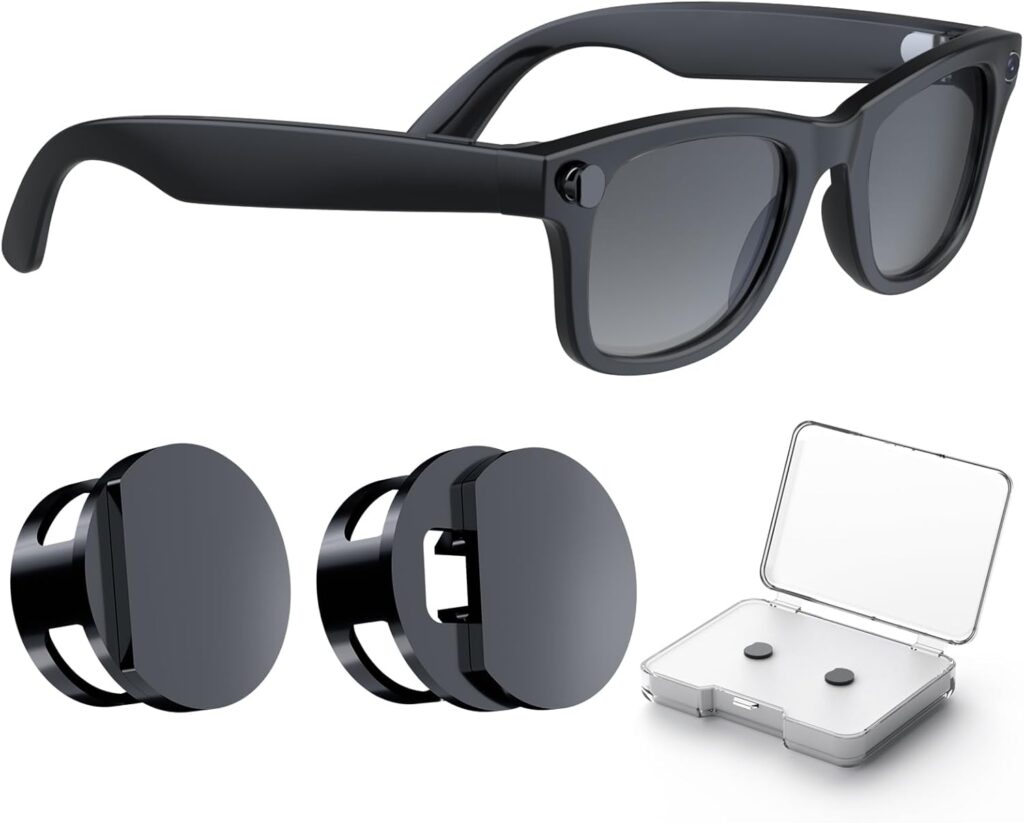
Meta’s Smart Glasses: Mods Break Privacy Light, Harassment Goes Viral
Categories: Cybersecurity, Meta
Serious flaws in the privacy and real-world application of Meta’s Ray-Ban smart glasses are coming to light, raising new alarms over the technology’s potential for abuse.
A high-quality $60 modification, offered by a hobbyist, permanently disables the glasses’ primary privacy feature, the small LED recording light. This comes as a separate, disturbing trend on social media shows users wearing the glasses to harass massage parlor workers, proving the technology’s potential for harm continues to be realized.

Bypassing the Privacy Light: From $60 Mods to $18 Stickers
The $60 hardware modification is notable for its quality and effectiveness. The mod, which reportedly involves physically damaging or removing the LED, is being offered by a hobbyist who charges for the service. Reports indicate the modification is so clean that the only sign of tampering is the broken seal on the original packaging.
This hardware “fix” is a direct response to Meta’s own software safeguard. Previously, users attempting to covertly film would simply place a piece of tape over the light. An $18 product called “Privacy Light Blockers for Meta Glasses” is now sold on Amazon. These simple, perforated stickers are designed to be placed directly over the LED, hiding the light from bystanders while still, in theory, allowing the sensor to function.
Meta deployed a software update that detects when the light is obstructed, automatically shutting down the camera. This $60 hardware mod, however, bypasses that safeguard entirely. By physically destroying the light, the glasses’ software is fooled into thinking the light is “working,” or at least not obstructed, allowing the camera to record without any visual indicator.
While Meta’s software is designed to counter such obstructions, the very existence of these cheap, mass-market products demonstrates a clear and persistent user demand for ways to bypass the glasses’ only privacy feature.
Harassment Trend Goes Viral
This new modification market only amplifies concerns already surfacing from the glasses’ real-world use. A “bonafide trend” on Instagram and TikTok shows a disturbing application of the technology.
Users are filming in first-person in schools, recording armed robberies, and even acts of terrorism.
The ‘Glasshole’ Problem, Magnified
This trend also reveals the ineffectiveness of the recording light, even when it is working. In many of the harassment videos, the light is visible, yet the workers, many of whom are non-native English speakers, do not seem to notice or understand what it signifies.
This real-world use challenges the common argument that recording with smart glasses is no different than using a smartphone. Holding up a phone is a clear, universally understood social gesture that signals recording. The glasses, by contrast, are covert.
This revives the specter of the “Glasshole,” a term coined for users of the original Google Glass who were perceived as creepy and invasive. But while Google Glass was bulky and obvious, the Ray-Ban collaboration is designed to blend in seamlessly.
With a high-quality, hard-to-detect mod and cheap stickers both available to disable the only privacy signal, critics argue Meta has facilitated a powerful tool for harassment with no effective safeguards. The public is largely unaware of what the small recording light signifies, and now, that light can be permanently, and professionally, extinguished.